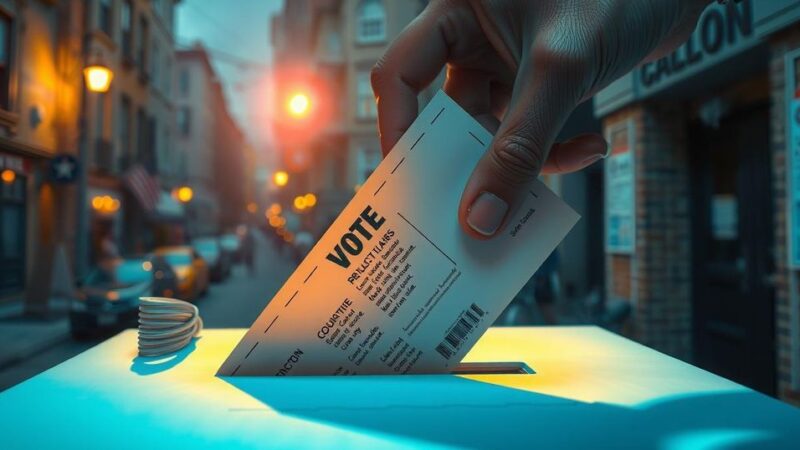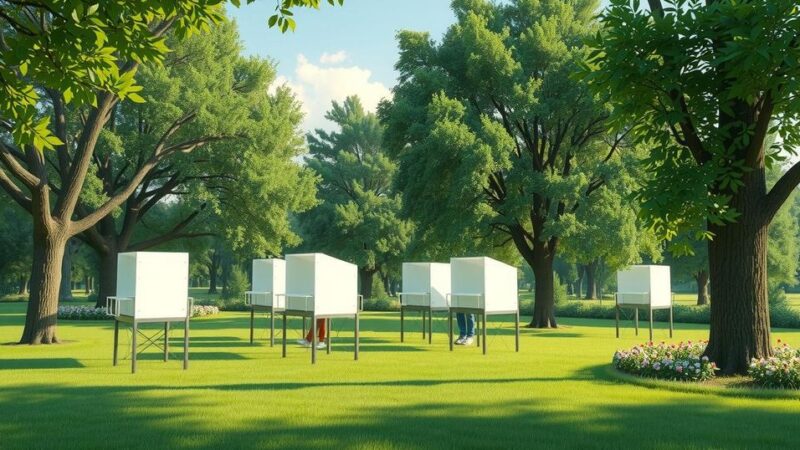Residents of Accra’s Odododiodio district await a competitive election between NPP’s Mahamudu Bawumia and NDC’s John Mahama. Economic concerns dominate discussions amidst strong party loyalties and factors like inflation and unemployment driving voter decisions. The Greater Accra area will be critical in determining the victor in this tight race.
As Ghana prepares for its presidential election on December 7, 2024, residents of Accra’s Odododiodio district are anticipating a competitive race between the governing New Patriotic Party (NPP) candidate Mahamudu Bawumia and the opposition’s former President John Mahama of the National Democratic Congress (NDC). Historical voting patterns in the district demonstrate a recent tendency toward tight margins, with Mahama’s narrow victory in parliamentary representation in 2020 despite the NPP winning the presidency overall. Given the socio-economic challenges currently faced by the country, including soaring inflation and high unemployment rates, voters are seeking candidates they believe can address these pressing issues effectively.
The atmosphere in Odododiodio reflects this electoral tension, where voters are divided in their loyalties. Emmalyn Asiamah, a first-time voter, expressed her commitment to the NDC and its candidate Mahama, stating, “We have to vote for change, my family is all NDC.” Conversely, Samuel Laryea expressed support for the NPP, noting the need for a more proactive approach to Ghana’s economic difficulties, attributing the challenges to external factors such as the COVID-19 pandemic and the war in Ukraine.
Support for either candidate hinges on their proposed solutions to the current economic crisis. Bawumia, who has distanced himself from past criticisms by promoting digitalization and reaffirming the NPP’s commitment to education and healthcare, positions himself as a forward-thinking candidate. Meanwhile, Mahama advocates for a “24-hour economy” aimed at enhancing productivity and creating job opportunities. This race is particularly crucial as both parties vie for dominance in the Greater Accra area, which is the most populous region and pivotal for electoral success.
As Election Day approaches, generational factors also play a significant role in voter decision-making, with many residents aligning with their familial party traditions despite economic concerns. For instance, Derek Nii Ayetey remains steadfastly with the NDC due to familial loyalty, while Collins Nettey supports Bawumia, emphasizing the necessity of economic revitalization for future generations. Overall, the 2024 election in Ghana appears set to be closely contested, particularly in key battlegrounds such as Odododiodio.
Ghana’s political landscape has been notably characterized by a two-party system, mainly between the NPP and the NDC, who have alternated in power since the early 1990s. Following an economic downturn in 2022, characterized by a significant debt crisis and subsequent engagement with the International Monetary Fund (IMF) for financial assistance, the electorate remains concerned about the management of the economy. With inflation rates around 23% and a high unemployment rate affecting livelihoods across the nation, voters are now scrutinizing past presidential administrations’ performance and are focused on the candidates’ proposed solutions for recovery and stability in the face of ongoing challenges.
In conclusion, Ghana’s upcoming election is poised to be one of the closely contested races in recent history, especially in urban centers such as Accra’s Odododiodio district. Economic concerns are paramount for voters, driving a wedge between long-standing party loyalties and the urgent need for effective governance to resolve pressing issues. As candidates present their visions for the future, the decisions made by constituents could significantly shape the trajectory of Ghanaian politics in the coming years.
Original Source: www.seychellesnewsagency.com






